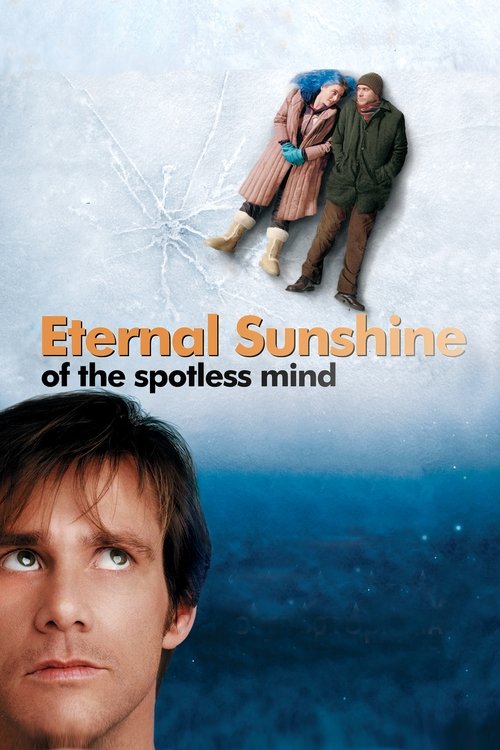
Title: Eternal Sunshine of the Spotless Mind
Year: 2004
Director: Michel Gondry
Writer: Charlie Kaufman
Cast: Jim Carrey (Joel Barish),
Kate Winslet (Clementine Kruczynski),
Kirsten Dunst (Mary),
Mark Ruffalo (Stan),
Elijah Wood (Patrick),
Runtime: 108 min.
Synopsis: Joel Barish, heartbroken that his girlfriend underwent a procedure to erase him from her memory, decides to do the same. However, as he watches his memories of her fade away, he realises that he still loves her, and may be too late to correct his mistake.
Rating: 8.091/10
"I wish I had stayed." This poignant sentiment encapsulates the bittersweet exploration of love, memory, and loss in "Eternal Sunshine of the Spotless Mind."
/10
Posted on May 31, 2025
Michel Gondry’s Eternal Sunshine of the Spotless Mind is a visually inventive and emotionally resonant science fiction romance that delves into the complexities of relationships and the human desire to erase painful memories. Following a difficult breakup, Joel Barish (Jim Carrey) discovers that his ex-girlfriend Clementine Kruczynski (Kate Winslet) has undergone a procedure to erase him from her memory. Hurt and impulsive, Joel decides to undergo the same procedure. However, as his memories of Clementine are systematically deleted, Joel rediscovers the beauty and significance of their time together, leading him to fight to preserve those cherished moments within his own mind.
The cinematography, by Ellen Kuras, is dreamlike and visually stunning, reflecting the subjective and often chaotic nature of memory. The film seamlessly blends realistic settings with surreal and imaginative sequences that represent the fading and distortion of Joel’s memories. The use of unconventional camera techniques and in-camera effects enhances the film’s unique and emotionally evocative visual language.
The acting performances are exceptional and deeply moving. Jim Carrey delivers a nuanced and introspective performance as Joel, showcasing his range beyond comedic roles. Kate Winslet is captivating as the free-spirited and impulsive Clementine, embodying her vibrant personality and underlying vulnerabilities. The supporting cast, including Kirsten Dunst as the quirky Mary Svevo, Mark Ruffalo as the charming Stan Fink, and Elijah Wood as the awkward Patrick, adds layers of complexity to the themes of love, memory, and connection.
The setting, primarily New York and its surrounding areas, provides a familiar backdrop that is then distorted and reimagined through the lens of Joel’s fading memories. The ordinary becomes extraordinary and often surreal as Joel revisits and tries to hold onto his past with Clementine within the landscape of his own mind. The costume design subtly reflects the characters’ personalities, particularly Clementine’s ever-changing hair colors, which act as visual markers of different periods in their relationship.
Jon Brion’s film score is melancholic, whimsical, and deeply emotional, perfectly complementing the film’s exploration of love, loss, and memory. The score’s unique blend of instruments and haunting melodies enhances the film’s dreamlike atmosphere and amplifies the characters’ inner turmoil and longing.
The screenplay, by Charlie Kaufman, based on a story by Kaufman, Gondry, and Pierre Bismuth, is a masterpiece of non-linear storytelling and profound emotional insight. The film’s intricate structure mirrors the fragmented nature of memory, challenging the audience to piece together the timeline of Joel and Clementine’s relationship. The dialogue is sharp, witty, and deeply human, exploring the complexities of love, regret, and the enduring power of connection.
Eternal Sunshine of the Spotless Mind isn’t just a science fiction romance; it’s a visually stunning, emotionally resonant, and intellectually stimulating exploration of the human heart and mind. Its innovative narrative, exceptional performances, and poignant themes make it a truly unforgettable and enduring cinematic experience.
0
0
